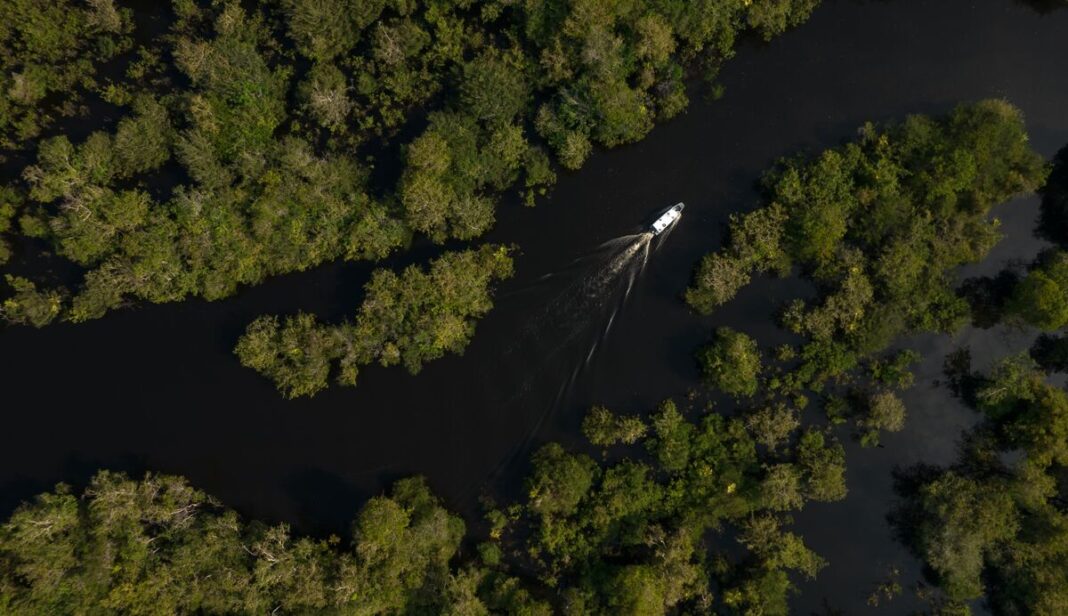Brazil’s Approvals for Oil Exploration: A Controversial Step Forward
Brazil’s state-controlled energy company, Petrobras, recently received the green light to explore for oil near the mouth of the Amazon River. This decision marks a significant milestone in a protracted battle with environmental regulators, raising numerous questions about environmental protection, economic development, and indigenous rights.
The Heart of the Amazon Basin
The area surrounding the mouth of the Amazon River is not just another patch of land; it’s a unique ecosystem that thrives with biodiversity. Scientists estimate that this region is home to myriad species, many of which remain undiscovered. The Amazon rainforest itself plays a vital role in regulating the Earth’s climate and acts as a significant carbon sink. Given these environmental stakes, the approval for oil exploration has sparked intense debates about the balance between natural preservation and economic gain.
The Regulatory Hurdles
Before the recent approval, Petrobras faced significant scrutiny from Brazil’s environmental regulators. Environmental organizations raised alarms about the potential risks associated with oil spills, habitat destruction, and the disruption of indigenous communities. For years, the company had been in a standoff with regulators, attempting to address concerns and comply with legal requirements. This prolonged negotiation period underscored the complexities of modern energy exploration, particularly in ecologically sensitive areas.
Economic Implications
For Brazil, the potential economic benefits of discovering oil in this basin are hard to ignore. The Brazilian government views oil exploration as a critical driver of economic growth and energy independence. With its status as one of the largest oil producers in South America, Brazil is keen on maximizing its resource extraction capabilities. The hope is that successful exploration could lead to a significant influx of revenue, creating jobs and supporting development projects nationwide.
Environmental Concerns
Experts and activists warn that oil extraction could have catastrophic consequences for the environment. Concerns abound about oil spills that could devastate the local ecosystem and harm both wildlife and human populations. Furthermore, the approval raises questions about Brazil’s commitment to combatting climate change. Critics argue that reliance on fossil fuels contradicts global sustainability goals, particularly amidst a growing movement advocating for renewable energy sources.
Indigenous Rights and Local Communities
One of the most pressing issues surrounding the oil exploration is its impact on indigenous cultures and local communities. The Amazon is home to numerous indigenous tribes whose lives and livelihoods depend on the health of the rainforest. As advocates for indigenous rights point out, the voices of these communities must be heard in discussions about resource exploitation. Many fear that their ancestral lands will be compromised, further marginalizing populations that have already faced historical injustices.
The Global Context
This approval comes at a critical time when nations worldwide are grappling with energy sustainability and environmental responsibility. Brazil’s decision may resonate beyond its borders, encouraging similar ventures in ecologically sensitive areas elsewhere. The global oil market remains volatile, and industries pivot towards greener technologies, putting increasing pressure on traditional oil companies to adapt or face obsolescence.
Public Sentiment
In Brazil, public sentiment remains divided. Some citizens see the decision as a necessary step toward economic recovery, while others lament the potential loss of biodiversity and cultural heritage. Discussions about oil exploration are often intertwined with larger social issues, such as corruption and governmental transparency, further complicating public opinion about Petrobras and its activities.
The Future of Exploration
While the approval for oil exploration near the Amazon River is a significant development, it is only the beginning of a complex journey. Ongoing monitoring and rigorous environmental assessments will be essential to ensure that any exploration activities do not exacerbate existing challenges. The outcomes of this exploration could set important precedents for future energy projects in Brazil and beyond, signaling either a commitment to sustainable development or a regressive step into an uncertain environmental future.



